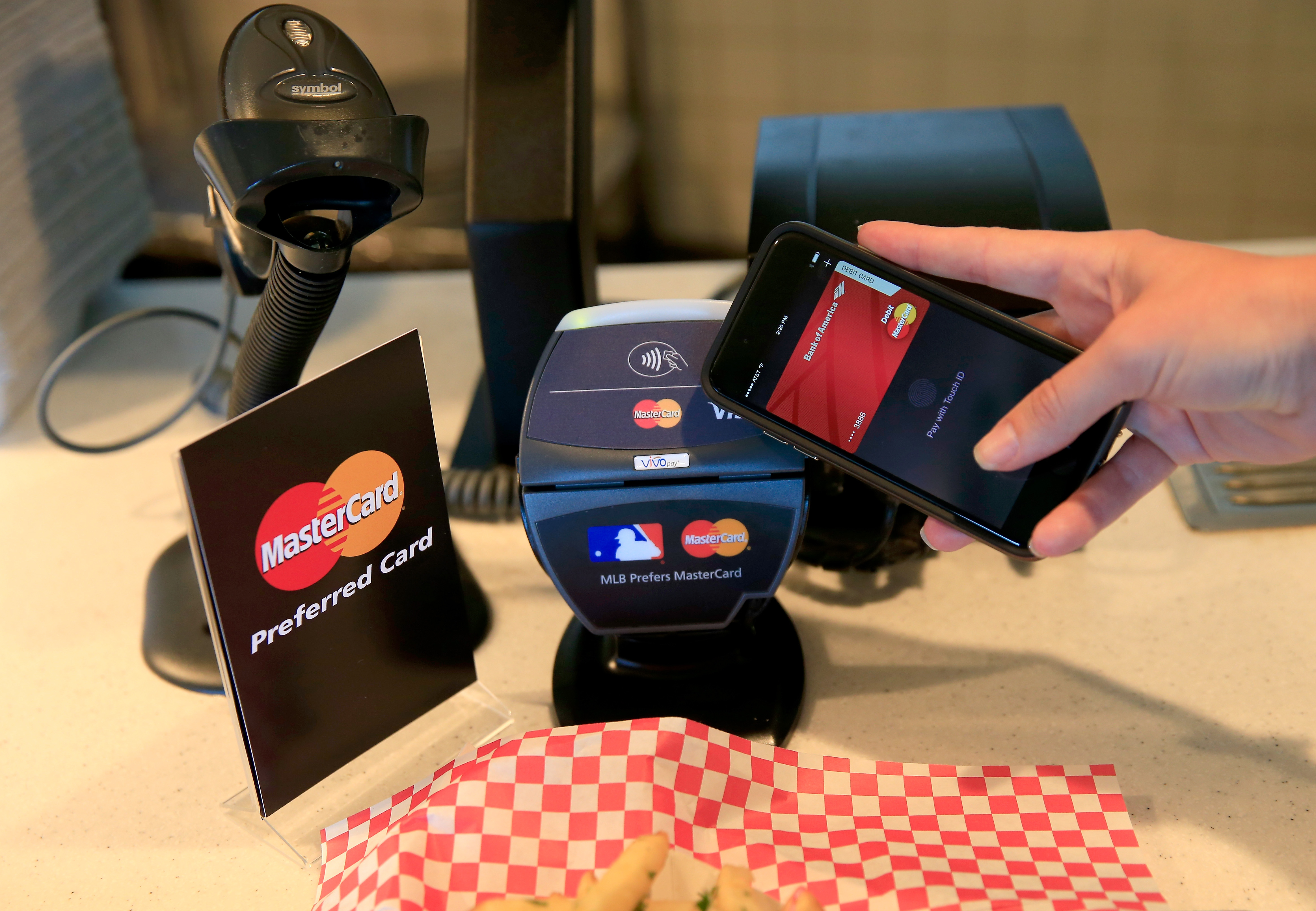The amazing promise of electronic payments
Part of our series on the future of Main Street


A free daily email with the biggest news stories of the day – and the best features from TheWeek.com
You are now subscribed
Your newsletter sign-up was successful
The ease of an electronic payment transaction can be downright glorious for a cash-strapped, time-pressed customer. With a phone or tablet in close range of a register, you can buy your groceries without ever swiping a credit card or reaching into your wallet. It's extremely convenient, particularly now that Apple and several major banks are on board.
And yet, small businesses have yet to embrace the technology en masse.
You can largely attribute their hesitancy to failures of Apple Pay's predecessors. Google Wallet had privacy issues. PayPal struggled with its mobile payment app — it couldn't convince its wide user base to bring PayPal with them from the web to the store. Indeed, Forbes asked just half a year ago if electronic payment technology was dead. It was a reasonable question at the time. But that is all changing.
The Week
Escape your echo chamber. Get the facts behind the news, plus analysis from multiple perspectives.

Sign up for The Week's Free Newsletters
From our morning news briefing to a weekly Good News Newsletter, get the best of The Week delivered directly to your inbox.
From our morning news briefing to a weekly Good News Newsletter, get the best of The Week delivered directly to your inbox.
(More on the future of Main Street: The booming future of collaborative work environments)
Many new systems — notably Apple Pay — work by using near-field communication, or NFC. For a virtual wallet transaction, the customer's NFC-ready phone and the business' NFC reader must be in close range. The latest iPhones have NFC tech built in, as do a whole host of Android options, including the Samsung Galaxy S5. A customer can perform a quick, swipeless transaction by holding his phone or tablet up to an NFC reader and authenticating the deal with a fingerprint.
Then there's Square, which has been successful for years. Compatible with iOS and Android, Square takes credit and debit cards, and even Bitcoin, if that's your thing. Through the Square app, users can either manually enter payment details or slide their card through the Square reader, a free device that plugs into compatible smartphones and tablets. For merchants, there's a fee per transaction, unlike with Apple Pay.Interestingly, Square will soon accept Apple Pay as well, making it a great option for small businesses concerned with targeting both Apple and non-Apple users. Square founder Jack Dorsey sums up the appeal of electronic payments pretty tidily in an interview with CNN Money: "We're not building a credit card. We're not building a payment device. We're building a [cash] register, and this register accepts all these forms of payments."
(More on the future of Main Street: How mom-and-pop businesses can thrive in the 21st century)
A free daily email with the biggest news stories of the day – and the best features from TheWeek.com
CurrentC relies on QR codes — square barcodes that are scannable by smartphones and tablets — rather than NFC technology. The customer pays by opening the CurrentC app and scanning a merchant-provided QR code. In practice, it's a lot like taking a photo — except doing so allows you to make an electronic payment. MCX, which made the app, is run by chain retailers trying to kill credit card fees. It's already been the subject of a fairly mild hack, and many predict it'll succumb to Apple Pay. The biggest issue, though, is merchants accepting CurrentC do so exclusively, meaning small businesses wouldn't also be able to offer Square or Apple Pay. That selectivity is huge risk best left to the Walmarts of the world, not smaller shops.
And indeed, small businesses are the ones who may benefit most from this fledgling revolution in the way we pay. Sure, a corporate giant like Disney obviously has some spare change to revamp its payment system. But to institute Apple Pay at Disney World means gracefully working in a sweeping change at a bustling tourist attraction. A small business can easily be more nimble.
(More on the future of Main Street: Is America's economic future dependent on the 'gut feeling' of small business owners?)
At a cost of $300 to $500, an NFC reader is decidedly affordable. And the customer base is growing. As of June 2014, there were one billion active Android users, most of whom have NFC-enabled operating systems on their phones and tablets. Add iPhone 6, iPhone 6 Plus, iPad Air 2, and iPad Mini 3 users, and all of a sudden there's a huge incentive to offer electronic payments. Apple doesn't disclose how many people use Apple Pay, but we do know in November 2014, its first month, the service took one percent of the electronic payment market share. Not bad, especially when you consider Google Wallet claimed a measly four percent the same month after almost four years in operation. A new Business Insider mobile pay report predicts Apple Pay's share of payments will grow over the next five years and outlines how other electronic payment programs are seeing a boost following Apple Pay's introduction.
Through electronic payments, small businesses can offer this growing base of virtual wallet holders not only ease of transaction, but also peace of mind. It's not like millions of customers boycott Target, Home Depot, or any other store hit by a security breach, but who wouldn't feel a twinge of unease handing over a credit card the next time? Electronic payments are secure because the credit card data you hand over is encrypted, meaning stores that receive your payments can't read your private account information. It doesn't work that way with an old-fashioned swipe of the card. For years, it's been customary to encrypt your credit card information when making an online PayPal purchase. It's about time customers get the same luxury in brick-and-mortar stores.
Electronic payments haven't taken off yet. But with more and more people using Square and Apple Pay-ready devices, small businesses will be wise to offer customers a quick, easy, and secure way to pay. Because soon enough, smartphone users will come to expect it.
Julie Kliegman is a freelance writer based in New York. Her work has appeared in BuzzFeed, Vox, Mental Floss, Paste, the Tampa Bay Times and PolitiFact. Her cats can do somersaults.
-
 Crisis in Cuba: a ‘golden opportunity’ for Washington?
Crisis in Cuba: a ‘golden opportunity’ for Washington?Talking Point The Trump administration is applying the pressure, and with Latin America swinging to the right, Havana is becoming more ‘politically isolated’
-
 5 thoroughly redacted cartoons about Pam Bondi protecting predators
5 thoroughly redacted cartoons about Pam Bondi protecting predatorsCartoons Artists take on the real victim, types of protection, and more
-
 Palestine Action and the trouble with defining terrorism
Palestine Action and the trouble with defining terrorismIn the Spotlight The issues with proscribing the group ‘became apparent as soon as the police began putting it into practice’
